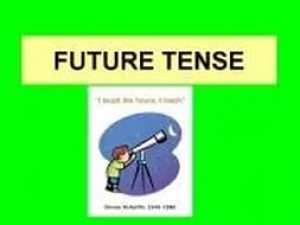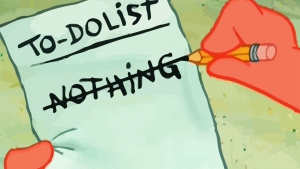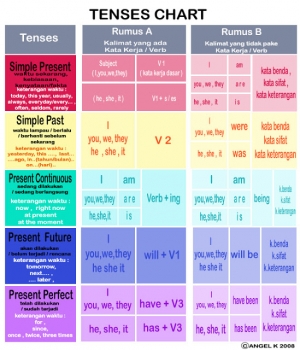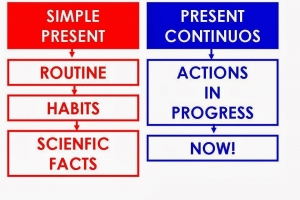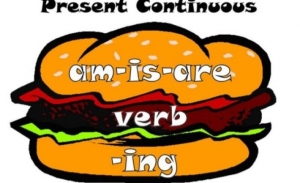Майя
Маткевич
Учитель английского языкаWill
|
Unit 6 Will (1) (a) Мы используем will ('ll), когда мы решили сделать что-либо во время разговора:
- Oh, He's left the door open. I'll go and shut it. - `What would you like to eat?' `I'll have a sandwich, please.' - Did you visit Mary? `Oh no, I forgot. I'll do it now.' - I'm too tired to walk home. I think I'll take a bus.
В этих предложениях использовать present simple (I do) нельзя.
- I'll go and lock the door. (а не `I go and lock the door.')
Не используйте will, когда говорите о том, что уже решено
- He can't visit you tomorrow because his parents are coming to see him. (а не `his parents will come')
Отрицательной формой will является won't (или will not):
- Секретарь:I'm afraid Mr Fred can't see you until 8 o'clock. -Вы: Oh, in this case I won't wait.
Мы часто используем I think I'll ... или I don't think I'll .., когда мы решаем что-то сделать:
- I think I'll stay at home and read tonight. - I don't think I'll go out this evening. I'm too busy.
(b) Мы часто используем will в следующих ситуациях:
Об will см.Unit 7. Об will и going to см.Unit 8
|
To be going to do something
|
Unit 5 To be going to do something (a) Мы используем to be going to do something, когда говорим о наших планах на будущее и о том, что мы уже решили сделать:
- I'm going to do my laundry next Monday. - When are you going to buy me new shoes? - John is not going to tell her anything about it.
Различие между will и going to смотри Unit 8
(b) Мы предпочитаем использовать present continuous (I am doing), когда мы говорим о какой-либо предварительной договоренности - например, договоренность о встрече, договоренность о путешествии куда-либо. Смотри Unit 4.
(c) Мы используем was/were going to do,чтобы сказать о том, что мы собирались делать в прошлом (но не сделали):
- I was going to return your book today but left it at home. - They were going to swim, but the weather was too cold.
(d) Мы также употребляем to be going to do something, чтобы сказать о том, что должно случиться по нашему мнению, в отношенении чего мы предполагаем.
Изучите следующие ситуации:
- Mother has bought lots of cakes for our party. It's going to be a joilly good party.
- It's going to be another warm day.
|
Present tenses
|
Unit 4 Present tenses Когда мы говорим о том, что уже сделано,мы используем present continuous (I am doing). Не используем present simple (I do).
She is speaking with her friends. They are cleaning the appartment.
Однако, некоторые глаголы не могут быть использованы в Сontinuous tenses, потому что понятие "что-то в развитии" не может быть применено к тому, что они обозначают. Это следующие глаголы:
Как правило, мы используем Present Simple c этими глаголами:
I hate being interrupted all the time. The book contains many chapetrs devoted to the history of the country.
Эти глаголы могут также употребляться в следующей конструкции can+see,hear и т.д.,которая ясно выражает действие, происходящее в момент разговора:
- I can see someone through the window, but I can't hear what they're saying.
Некоторые из этих глаголов могут употребляться в Сontinuous tenses, если они означают: to think - "обдумывать" to see - "встречаться" to have - в таких выражениях, как to have breakfast, to have dinner, to have a good time, to have supper, to have troubles, и т.д.
- I'm thinking of going to the cinema tonight. - She is having a rest. She is very tired. - I'm seeing my manager to-morrow at 8.
|
Present continuous or present simple
|
Unit 3 Present continuous (I am doing)
Перед изучением этого урока изучите Unit1 и Unit2.
(a) Изучите эти объяснения и сравните примеры:
(b) В Unit 1 мы говорили о глаголах, которые обычно не используются в сontinuous tenses. Они используются только в simple tenses. Например, Вы не можете сказать `I am liking'. Вы можете только сказать I like. Вот список глаголов(но существуют и исключения), которые не используются в continuous tenses:
want like belong know suppose need love see realise mean forget prefer hate hear believe understand remember seem
have (если в значении 'владеть' - см.также Unit 24 ) think (в значении 'полагать')
- I have many books by this writer. (то есть обладать) - I hate doing nothing - She doesn't like reading newspapers. - This car belongs to our neighbours. - They can't hear us. They are too far away. - She seems very tired. - What do you think Tom will do? (в значении 'полагать')
|
||||||||||||||||||||||||
Present simple
|
Unit 2 Present simple
(a) Изучите следующие ситуации:
Это время present simple: Every day my husband and I get up at 7 o'clock. We have our breakfast and go to the office. It is seven o'clock now, but we are sleeping because it is Saturday and we don't have to go to the office.
Мы используем present simple, для того, чтобы сказать о действиях, которые происходят постоянно.Мы не связываем действие с определенным моментом,а считаем, что действие происходит постоянно или повторяется время от времени. Неважно, когда произошло действие по отношению ко времени разговора:
- I always put down the new words into my notebook. - Does she study French three times a week? - They do not watch TV every evening.
- Who does the shopping in your family? - My mother does. She goes shopping twice a week.
Помните, мы говорим: he / she / it -s. Не забывайте s:
- I work with the computer every day.My friend works every day too.
(b) Мы используем do / does, чтобы задать вопрос или построить отрицательное предложение.
- Excuse me, do you speak English? - `Would you like a cigarette?' `No, thanks. I don't smoke'. - What does this word mean? (а не `What means this word?') - Rice doesn't grow in Britain.
Построение вопросов см.Unit 49.
(c) Мы используем present simple, когда говорим, как часто мы делаем те или иные вещи:
- Every Saturday we go to the cinema. (Как часто?-1 раз в неделю) - She doesn't often read newspapers. - How often do they come to see you?
(d) Мы используем время present simple, когда хотим сказать о чем-то, что действительно является фактом:
- The Earth is round. It goes round the Sun. - In Britain most of the shops close at 5.30 p.m.
|
Present continuous
|
Unit 1 Present continuous (a) Мы используем present continuous, когда мы говорим о чем-либо, что происходит во время разговора. Изучите следующие ситуации:
- May I see your husband? Is he having a rest? - That's OK. He is not sleeping. Come in.
(b) Также мы используем present continuous, когда мы говорим о чем-либо , что происходит во время разговора, и не только непосредственно во время разговора:
- Who is that man at the bar? - Oh, this is James Feather, a famous playwriter. They say, he is writing a new play now.
The delegation is carrying on negotiations with our firm. Today they are having an excursion to our plant.
Обратите внимание на форму are having. Как правило глагол to have не используется в Сontinuous Tense в значении "to possess" (обладать). В этом примере are having an excursion = are going sight-seeing. Об этом и других глаголах, которые не используются в Сontinuous Tense см.Unit 3.
(c) Мы часто используем present continuous, когда мы говорим об определенном периоде времени. Например: today, this season и т.д.:
- We are leaving tomorrow at six. - They are playing with this team in a week.
(d) Мы используем present continuous, когда мы говорим об изменении ситуации:
- The population of the world is rising very fast. (а не `rises') - Is your French getting better? (а не `does ... get')
|

